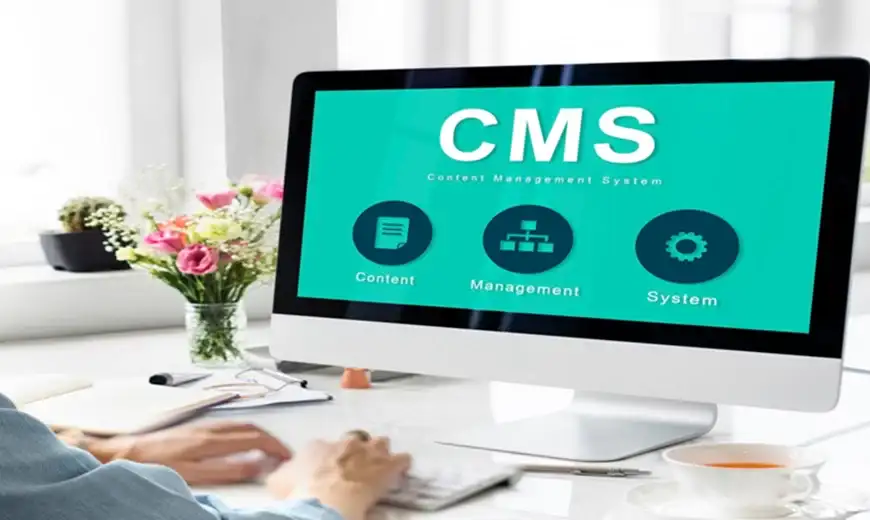Streamline your content management processes with our expert CMS web development services. With ValueCoders at your disposal, you can utilize the latest technologies to create scalable and user-friendly CMS solutions, enhance your online presence, improve user experiences, and boost revenue.
Utilize integrations with SEO tools and analytics software to drive better results and higher engagement.

Explore the advanced CMS technologies we use to deliver robust, scalable solutions tailored to your needs, ensuring optimal performance, security, and flexibility in every project.
Our structured CMS development process ensures a seamless, efficient, and tailored solution, catering to your specific needs and goals from concept to after-launch support.
In the initial stage, we work closely with you to understand your business requirements, target audience, and project goals. Once done, ValueCoders develop a project plan, while ensuring it aligns with your objectives.
Our design team creates intuitive interfaces and prototypes, focusing on user experience and brand consistency. We develop wireframes to visualize the CMS layout, ensuring a user-friendly navigation experience that meets your specific needs.
In this phase, our expert build CMS implementing the core features and integrating necessary third-party tools. We follow agile methodologies, ensuring flexibility and timely delivery while maintaining the highest coding standards.
Quality assurance is crucial to our process. Our QA team performs extensive testing, including functional, usability, and performance tests, to identify and fix any issues. This ensures your CMS operates flawlessly across all platforms and devices.
We carefully migrate existing content and data to the new CMS, ensuring a secure and smooth transition. We also provide comprehensive training sessions to equip your team with the skills to manage the new CMS effectively and confidently.
Finally, we launch your CMS seamlessly, ensuring minimal disruption to your business. Our support doesn’t stop there; we also offer ongoing maintenance and support services, addressing any issues promptly and providing updates to keep your CMS up-to-date and secure.
Choose ValueCoders for unparalleled expertise in CMS development with a focus on tailored solutions that drive efficiency and growth.
Our commitment to cutting-edge technology, seamless integration, and exceptional support ensures your CMS is robust, scalable, and perfectly aligned with your business needs.
From startups to big enterprises, development
From startups to big enterprises, development
From startups to big enterprises, development
From startups to big enterprises, development
From startups to big enterprises, development
From startups to big enterprises, development
From startups to big enterprises, development
Access cost-effective, high-quality CMS solutions with ValueCoders that provide excellent ROI.


CMS development refers to the process of creating and customizing Content Management Systems. A CMS software platform enables users to manage and publish digital content easily. It involves designing the architecture, user interface, and database structure and implementing features like content creation, editing, user management, and scalability.
CMS development allows businesses to manage their content effectively, improve productivity, and deliver a seamless user experience on websites, blogs, and other digital platforms.
Majorly, there are three types of CMS development solutions available:
In a Content Management System (CMS), templates and themes play crucial roles in controlling the visual presentation and layout of a website or web application. They help separate the content from the design, making maintaining and updating a website easier. Here’s an explanation of their roles:
Templates:
Templates in a CMS are structural components that define a web page’s overall layout and structure. They serve as a blueprint for how content should be displayed on different types of pages, such as the homepage, blog posts, product pages, or contact forms. The key aspects of templates include:
When a CMS user creates or edits a page, the chosen template determines the page’s basic structure and design, ensuring a consistent look and feel throughout the website.
Themes:
Themes in a CMS are collections of design elements and styles that control the visual appearance of a website. A theme includes elements like fonts, colors, typography, backgrounds, and CSS (Cascading Style Sheets) rules. The key aspects of themes include:
Users can switch between themes or customize them to give their website a unique look while keeping the same content and structure provided by the templates.

When developing a Content Management System (CMS), security is paramount to protect both the CMS itself and the websites or applications it powers. Here are crucial security considerations when developing a CMS:
Conduct regular security assessments, such as penetration testing and vulnerability scanning, to proactively identify and address security weaknesses.
When it comes to website development, several CMS (Content Management System) platforms are popular and widely used. Here are some of the top CMS platforms:
These CMS platforms offer different features, flexibility, and levels of complexity, so it’s essential to consider your specific website requirements and choose the one that best aligns with your needs and technical expertise. You can also refer to our blog post for more details about these and more platforms.
Custom CMS can be integrated with various third-party applications and services to enhance its functionality. Some common integrations include:

To manage a custom CMS for specific content management needs, consider the following steps:
When selecting a CMS development company, consider the following factors:
Implementing a successful CMS involves a combination of strategic planning, user-focused design, effective collaboration, and continuous support. Here are the key best practices to ensure a smooth and successful CMS implementation:
1. Resource Planning
Efficient resource planning is crucial for a successful CMS project. Identify and allocate the right resources, including skilled developers, designers, and project managers. Ensure that your team has the necessary expertise and tools to handle each phase of the project, from planning to post-launch support.
2. Cost Estimation
Accurate cost estimation helps in avoiding budget overruns and ensures that the project stays within financial constraints. Break down the project into smaller tasks, estimate the cost for each task, and factor in contingencies. Regularly review and adjust the budget as the project progresses to account for any changes or unforeseen expenses.
3. UX Design
User experience (UX) design is at the heart of a successful CMS. Focus on creating intuitive, user-friendly interfaces that cater to the needs of your target audience. Conduct user research and usability testing to gather feedback and make informed design decisions that enhance the overall user experience.
4. UI Design
A visually appealing and functional user interface (UI) design is essential for engaging users. Develop a consistent design language that aligns with your brand identity. Use design elements such as typography, color schemes, and imagery to create a cohesive and attractive interface that enhances user engagement and satisfaction.
5. Collaborative Controls
Effective collaboration is key to the success of a CMS project. Implement collaborative controls and tools that facilitate communication and teamwork among all stakeholders. Use project management software, version control systems, and regular meetings to ensure that everyone is on the same page and working towards common goals.
6. Knowledge Management
Knowledge management ensures that all team members have access to the necessary information and documentation throughout the project. Create a centralized repository for storing project documents, design files, and other relevant information. This practice helps in maintaining consistency and continuity, especially when onboarding new team members.
7. Change Management
Change is inevitable in any project. Implement a robust change management process to handle modifications efficiently. Establish clear procedures for requesting, evaluating, and approving changes to the project scope, design, or functionality. This helps in minimizing disruptions and ensures that changes are implemented smoothly.
8. Post-Launch Warranty
Offer a post-launch warranty to provide ongoing support and maintenance after the CMS goes live. Address any issues promptly and provide regular updates and enhancements to keep the CMS secure and up-to-date. This practice ensures that the CMS continues to meet user needs and performs optimally over time.
By following these best practices, you can ensure a successful CMS implementation that meets your business objectives and delivers a positive user experience.
When outsourcing custom software development services, follow these general steps:
The future of CMS development is likely to be shaped by the following trends:
Here are some of the commonly asked questions related to CMS development that our clients frequently have in their minds.
Ans. ValueCoders offers expertise in CMS development with the following:
We focus on delivering customized CMS solutions that align with your specific requirements, providing reliable support, and ensuring a seamless user experience.
Ans. The timeframe for CMS development varies based on the project’s complexity and scope. Here are the estimated timelines:
Ans. The cost of CMS implementation with ValueCoders depends on various factors such as feature complexity, content types, and integrations. Here’s a general breakdown:
For a precise quote, please provide your specific requirements, and our representative will contact you to discuss your options.
Ans. ValueCoders offers various types of CMS development, including:
Ans. Absolutely! We have developed an eCommerce platform for one of our clients that can be used on both Android and iOS devices. You can have a look at this to get a better understanding of their expertise and the quality of their work.
Ans. The flexibility of the CMS provided by ValueCoders can vary based on your specific requirements. However, common flexibilities include:
It is advisable to discuss your specific needs with us to determine the flexibility options available to you.
We are grateful for our clients’ trust in us, and we take great pride in delivering quality solutions that exceed their expectations. Here is what some of them have to say about us:
Trusted by Startups and Fortune 500 companies
We can handle projects of all complexities.
Startups to Fortune 500, we have worked with all.
Top 1% industry talent to ensure your digital success.



Let's discuss how we can bring your vision to life.